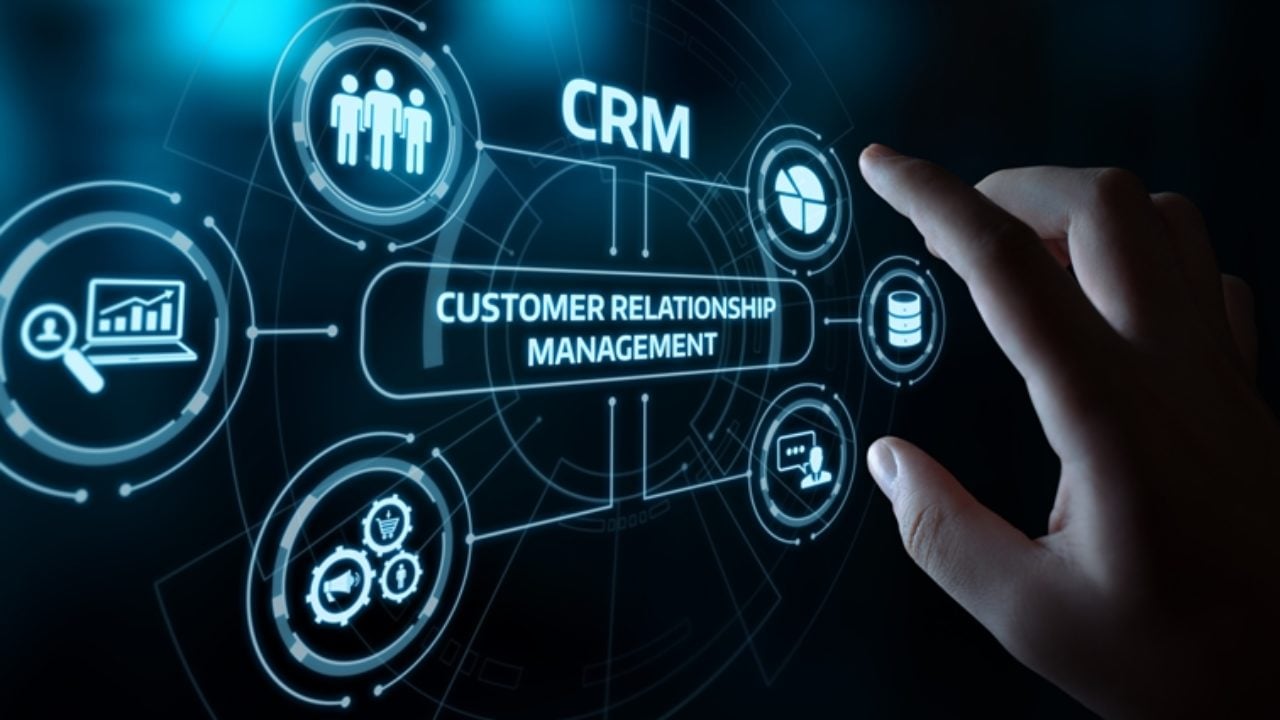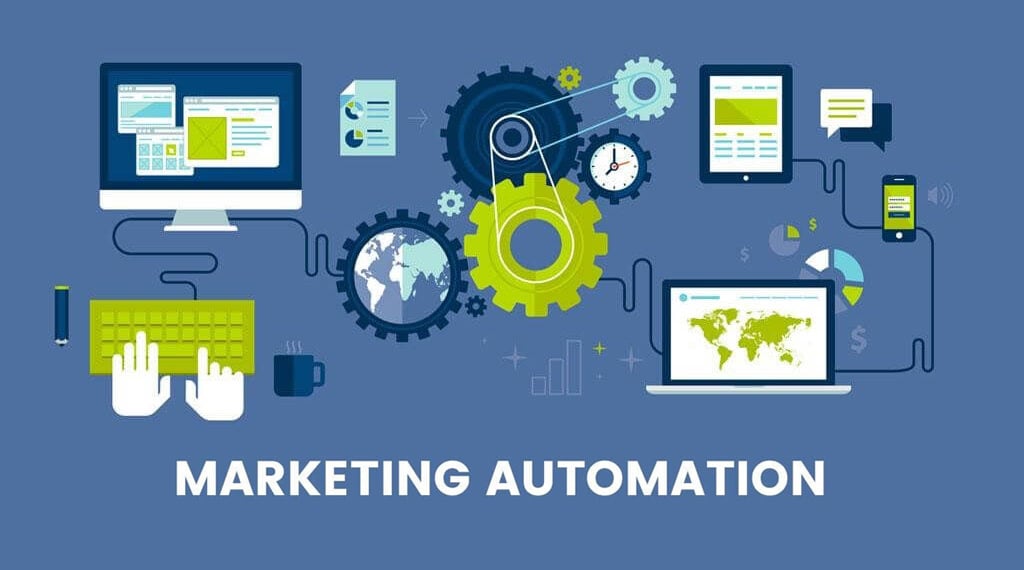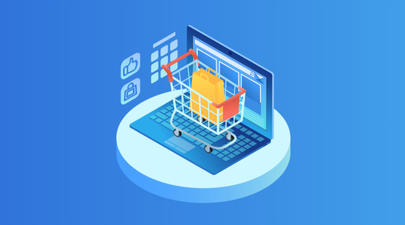It’s no secret that CRM vs ESP are two of the most important tools for businesses today. They both offer a range of benefits, but it can be difficult to decide which one is right for your company. In this article, we’ll outline the key differences between CRM and ESP and why you might choose one over the other or when you should integrate both. Stay tuned!
CRM (Customer Relationship Management) is an email marketing solution that uses data analysis to maintain contacts, manage sales, and engage with current, past, and potential customers. Personal data is collected through a variety of channels of communication, including phone, email, chat, website, promotional materials, and social media.
Table of Contents
What are CRM and ESP?
With the use of CRM, organizations may better understand their target markets and provide for their needs. It is helpful for people who work in professional service and must sustain relationships through in-depth notes and client oversight.

Meanwhile, an email service provider (ESP) is a digital company that makes it easier to create email lists and send subscribers email campaigns. To target email content, you can track data and categorize or divide an address list into groups based on interests.
Various email providers offer paid and free services, and their operations could be supported by advertising. They can demand identification information or grant users total anonymity. Different kinds of email service providers include:
- ISP-based email can identify its users based on the IP addresses that ISPs give them.
- Free mail services don’t charge anything and are free to promote their offerings in every communication.
- Paid premium email services offer superior functionality to free ISP-based email.
- Vanity email permits the operation of a shim service because it doesn’t allow access but instead forwards all messages to another account.
CRM vs ESP: Primary differences in the goals and methods
Your CFO might request that you decide against using an email service provider (ESP) because your CRM either offers or already has an email marketing “module” built in. While it might seem to make sense, it rarely does. In actuality, having an ESP and a CRM puts you in a better position to make the most of both of your CRM vs ESP expenditures.
CRM – manage customer relationships
An enterprise-level system, the typical CRM system is created and optimized for a large number of users within a business. The main objective is to consolidate important customer data in order to facilitate precise and meaningful interactions at the individual and segmentation levels.

Users frequently receive basic modules and templates to send customized messages to particular contacts, typically in response to a customer action or request, or to more effectively target communications regarding new goods and services.
For businesses focused on serving customers, that one-to-one functionality is essential. One-time and small-segment mails, however, don’t have the same impact as professional mail campaigns do on an individual or group level. Because they must cater to a variety of consumers, most CRM-based email campaigns are typically simple by design. Modern email platforms have resources and capabilities that untrained email specialists or CRM modules simply cannot match.
ESP – manage campaigns and metrics
Professional-level email marketing is a difficult operation that calls for a wide range of technical expertise, including responsive design, dynamic data support, delivery optimization, campaign analytics, and scheduling, among other things. It’s a discipline that requires concentration, expertise, and knowledge of the technical tools needed to design and implement successful campaigns.

Additionally, campaigns by themselves are not very effective at one-to-one communications, unlike CRM systems above, unless you’ve additionally enabled some automation to respond to specific recipient triggers (opens, clicks, etc.)
Email campaigns, on the other hand, can interface with CRM or other Business Intelligence platforms to reveal subscriber activity and enable one-on-one follow-up on the CRM platform. Real-time notifications or batch file transfers are frequently used for this.
A professional email provider provides other vital tasks that protect and enhance customer communications, in addition to its capacity to meet CRM’s broader objective.
Which one is for your project?
Reasons to choose CRM
- Integration with various marketing channels: CRM systems assist you in coordinating and integrating all aspects of the customer journey in one location. Every customer interaction is tracked and synced in your CRM tool whenever they occur on a marketing channel you oversee.
- Marketing tasks automation: Along with selling a good or service, you also need to execute a lot of tedious, repetitive activities. Filling out forms, sending reports, and generating bills and legal papers are a few examples. CRM solutions may readily address those issues, allowing you to concentrate on more significant actions.
- Customer journey clear overview: Using a CRM solution, you may identify a customer’s position in the sales funnel and use customer journey mapping to assist you to close the deal. It involves picturing interactions between your company and the customer. Having a CRM connection across marketing and sales channels ensures a seamless customer experience. An illustration of your customer’s journey will show you the difficulties they faced along the way and the processes that led to a conversion.

Reasons to choose ESP
You should think about ESP if you want to communicate with customers in an effective way, and the following are some of its positive qualities:
- Using bulk communication ensures that thousands of customers will see your email! With an ESP tool, you can send the same message to as many contacts as you want at the same time.
- Making lists enables you to categorize your contacts into separate lists. It makes a significant difference to email marketing since it allows you to send distinct emails to those who are already your clients and to people who aren’t.
- You can send pre-written messages on specific occasions that you’ve predetermined using automatic messaging.
- Email-specific servers are quick and effective messaging devices.
- An easy-to-use email builder offers pre-made email templates to simplify and speed up the mailing process.
- You can assess the effectiveness of their campaigns with the report option.
Why should you integrate CRM vs ESP?
Consider integrating CRM vs ESP if you find numerous characteristics of both products that are similar or even unique. Through the integration of the CRM and ESP, two platforms will be linked and able to exchange relevant data. You will gain from automated marketing, which will lessen the tiresome mailing procedure.
CRM and ESP differ in that they don’t have optimized deliverability, but integration will enable them to work together productively. Users of MailUp and Salesforce CRM, for instance, can connect the two programs for effective integration. Along with the advantages already mentioned, you will gain improved personalization, limitless segmentation capabilities, advanced workflows, automatic data synchronization, increased value, and time savings.
In Conclusion,
CRM vs ESP, which is better for your business? The answer to this question largely depends on your specific needs and what you are hoping to get out of your CRM or ESP. If you need a comprehensive system that can manage all aspects of your customer relationships, then a CRM is likely the best option for you. However, if you are looking for an email marketing platform with some additional features, such as lead capture and automation, then ESP may be the better choice.
Whichever system you decide to go with, make sure to research different options and read reviews from other businesses before making a final decision. Ultimately, the right CRM or ESP will help streamline your sales process and boost your bottom line.
The key lesson here is that CRM vs ESP offer distinctive but complementary value propositions. Congratulations if you’re fortunate enough to have both working at their best. You’re not the only one who finds the decision to be challenging if you’re at one or the other stage. Leave us a message and we’d be pleased to offer some advice on how to reach your objectives.











